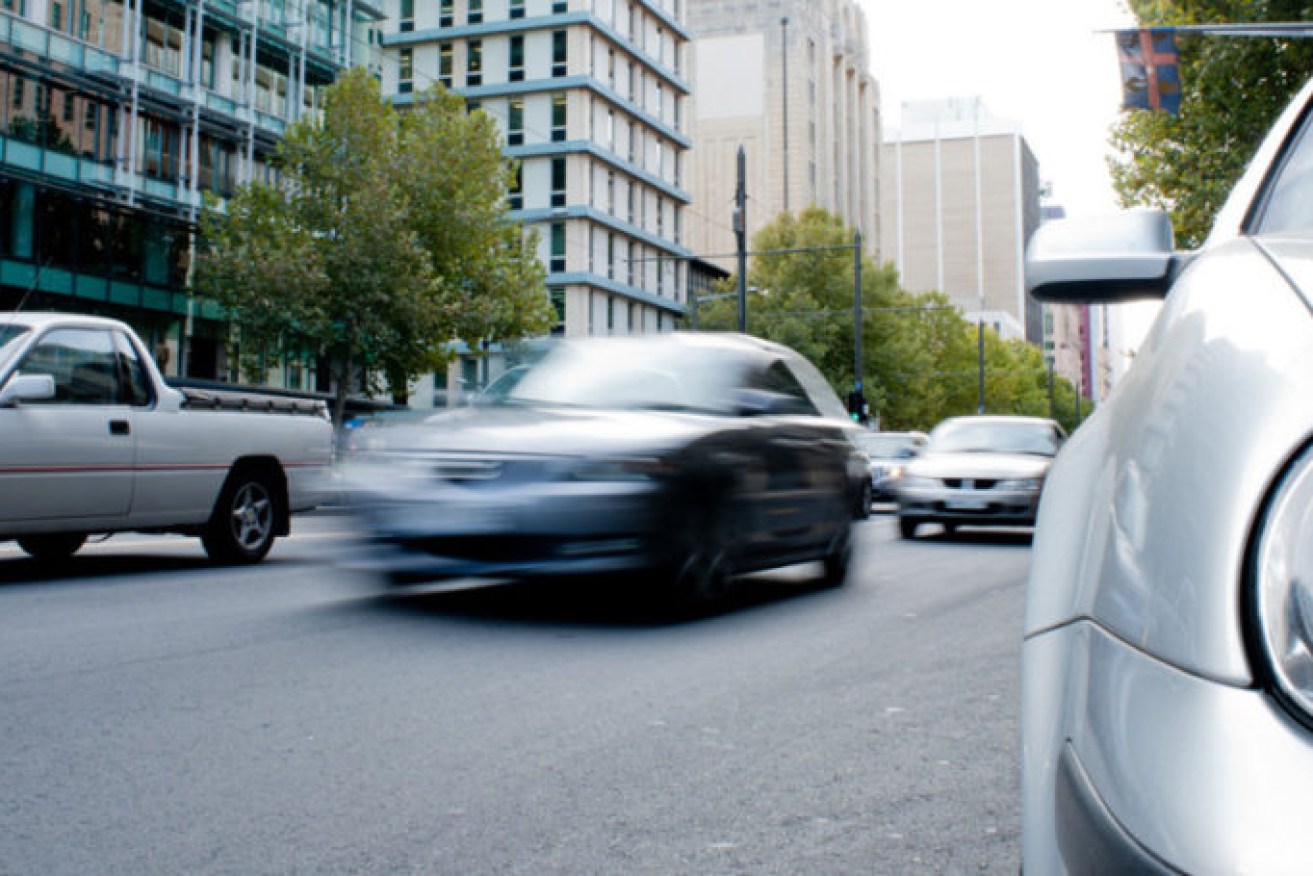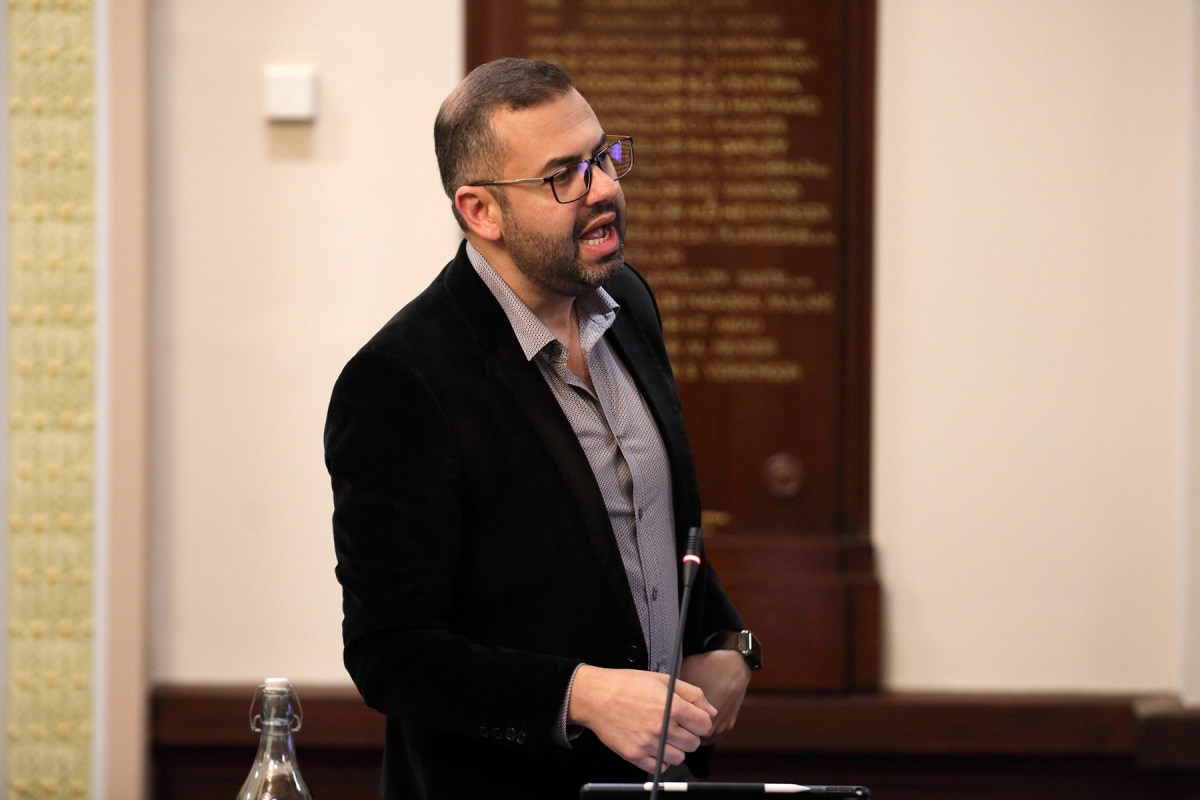Council backs reimbursing city carpark motorists, not public transport users
Adelaide City Council has voted down a proposal to reimburse public transport users who come to the city to shop and do business, instead deciding to limit a ticket validation scheme to motorists using council-owned carparks.

Adelaide City Council will investigate adopting a ticket validation scheme for its UParks.
At a heated council meeting last night, central ward councillor Houssam Abiad successfully moved for the council to investigate creating an automated system to allow CBD and North Adelaide businesses to validate customer UPark tickets.
Abiad argued the scheme, which is already in place in several suburban shopping centres, would benefit the council and city businesses, as it would reduce customer car parking fees and promote increased patronage of the council-owned and operated UParks.
But his motion was hijacked by an amendment proposed by area councillor Robert Simms, who called on the council to also consider investigating a system to reimburse customers who travel to the city on public transport.
Simms said while Abiad’s proposal was a “worthy goal”, he expressed concern that the council would only be rewarding one mode of transport – cars.
“My amendment is not trying to detract from what Councillor Abiad is trying to do, it really just promotes alternative modes of transport and it rewards all transport equally,” Simms told the council chamber.
“Those people who travel by public transport, their dollar is just as good as those who travel to the city by car.”
Fellow area councillor Anne Moran, who seconded Simms’ amendment, said while she was often considered “pro-car”, she believed council would be acting “off message” by restricting a ticket validation scheme to motorists.
“I understand the need to become more Melbourne-like and encourage people to use public transport,” she said.
“I think it’s seen as rather self-serving in a way if we don’t spread it to encouraging people to take public transport.”
But Abiad slammed Simms’ proposal as a “complete different proposition” to his original motion.
“I think sometimes councillor Simms forgets whether he is in council or in federal Canberra or in the state government,” he said.
“We don’t own the public transport network, so a system to reimburse customers for tickets is not something that this council can do or investigate.
“We might as well subsidise the helmets that people wear for their bikes, we might as well subsidise their petrol vouchers for people that are using petrol to get into our city. When do you want to stop?”

Central ward councillor Houssam Abiad. Photo: Tony Lewis / InDaily
Abiad was supported by area councillor Franz Knoll, who argued that while a public transport ticket reimbursement scheme could be considered in the future, there was an imperative to consider the UPark model as a “first stepping stone”.
“This is something we can afford to work with and we can control, it does benefit the UParks because obviously it does flow money towards them, and it will increase visitations to the city,” he said.
“Public transport is already 80 per cent supported by the public of South Australia, whether they do ride it or not.
“We can have a conversation with the State Government about how we can get more people using etcetera, but let us first do this.”
But Simms and south ward councillor Helen Donovan both raised the city council’s carbon neutral vision as a reason to act immediately on public transport reimbursement.
“If we are truly committed to reducing the 40 per cent of carbon emissions that occur through transport then part of that is attempting to also provide support for other forms of transport,” Donovan said.
Simms added: “The reality is, if we continue to focus exclusively on the car as the only form of transport that is worthy of recognition by this council, we are going to really undermine our strategic focus of reducing carbon.”
That drew scorn from Abiad, who said the council had already paid attention to broad-reaching transport policy through it its discussion two week’s ago on the east-west bikeway consultation – which was ultimately delayed by council with the support of the “Team Adelaide” majority faction, of which Abiad is a member – and through its discussion during last night’s meeting on extending the Lime e-scooter trial in the CBD.
“This council considers all modes of transport already and I’m not going to accept from anyone pointing the finger in this direction that we are not going to consider that,” Abiad said.
“What this is about, which is something I’ll never understand, is that businesses currently in the city can if they choose pay for public transport tickets for commuters.
“I don’t see the need for government to interfere in every step of the way in people’s lives.”
Abiad added “the future is coming and it’s coming quick” in reference to his belief that Adelaide will, at some point in the future, be free of carbon-emitting cars.
“The car as we know it will change and its emissions will change, and this city will remain and our businesses will remain,” he said.
Simms’ amendment was defeated with the support of all six so-called “Team Adelaide” representatives – including Houssam Abiad, Franz Knoll, Simon Hou, Mary Couros, Arman Abrahimzadeh and Alexander Hyde – and independent Jessy Khera.
Abiad’s original motion was passed unanimously by the council.
Want to comment?
Send us an email, making it clear which story you’re commenting on and including your full name (required for publication) and phone number (only for verification purposes). Please put “Reader views” in the subject.
We’ll publish the best comments in a regular “Reader Views” post. Your comments can be brief, or we can accept up to 350 words, or thereabouts.
InDaily has changed the way we receive comments. Go here for an explanation.




